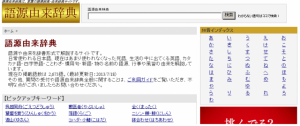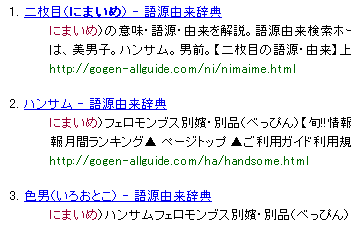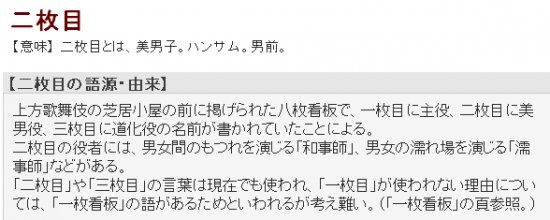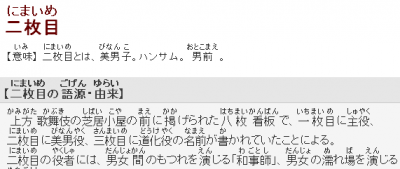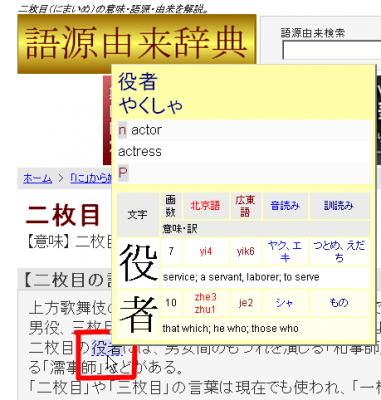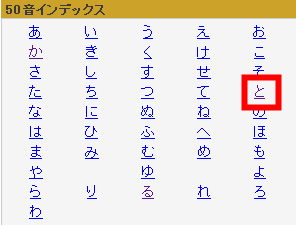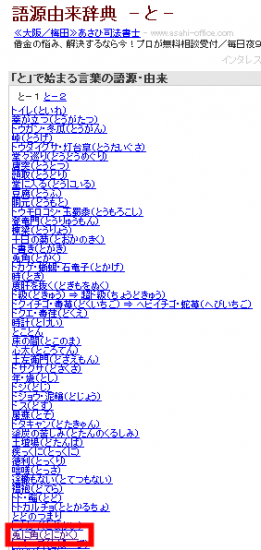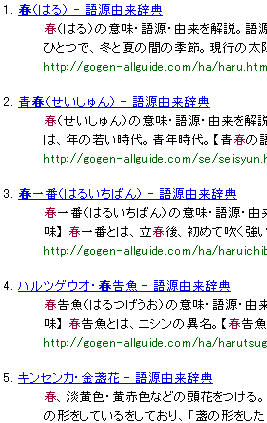This is a website that functions as a dictionary where you can find out the etymology/origins of Japanese words. The derivations of Japanese words, Japanese events and Japanese customs are explained. At present (6 July 2015), there are 2,713 words explained here.
- The website introduces the roots of various types of language, including Japanese used in daily life, obsolete words, English terms that appear in daily life, katakana words, 'yojijukugo' (4-character kanji compounds), proverbs, idioms, newly coined words and names of things.
- The origins of various events and customs are explained.
- You can search the site either by inputting the word you want (using 語源由来検索), or by choosing from the Japanese syllabary index (50音インデックス検索).
- The site display language is Japanese-only.
How to...
Look up the origins of a word you know
Enter the word you want to look up into the box next to the title at the top of the screen.
As an example, let's look up the origins of the word にまいめ (二枚目).
Click on the search result at the top of the screen and you will go to a page detailing the meaning and origin of your chosen word, as in the image below.
If you find you don't know how to read certain kanji, you could try using Hiragana Megane (Introduction article) to read the definition. If you don't understand the meaning we recommend you try POPjisyo (Introduction article).
If you know the Japanese syllable the word you are looking for starts with, you can use the Japanese syllabary index.
Choose and click on the correct kana from the index on the right of the screen.
For example, even if you know the word you're looking for begins with "とに..." but you don't know the rest, you can still click on the first kana to start search.
A list of words beginning with "と" appears.
Look-up via keyword
If you input characters into the box and perform a search, all the entries which include that character (or word), either in the heading or explanation, are displayed.
Enter the term "動物" (animal), "海" (sea) or "桜" (cherry blossom) and all the entries which make reference to that word are listed.
For example, let's input "春" (Spring)
A list like this is displayed.
In addition, there are sections showing selected keywords, updates and weekly/monthly rankings.
Even without a particular word you want to look up, a big part of what makes it fun to learn a language such as Japanese is finding out the kinds of idioms and customs there are, and the origins behind these.
Also, since everything here is written in Japanese, this website can be a good resource for advanced learners who want to deepen their knowledge of the Japanese language and customs whilst practising their reading too.


